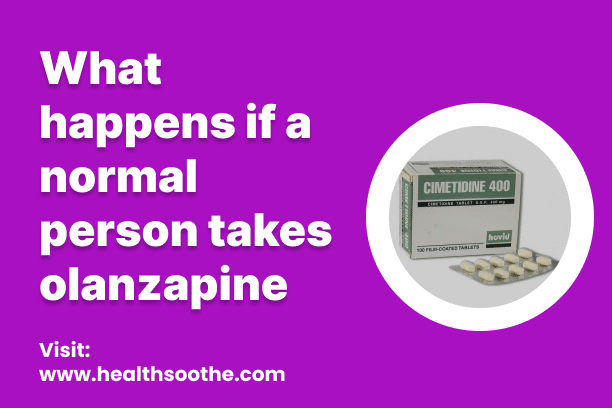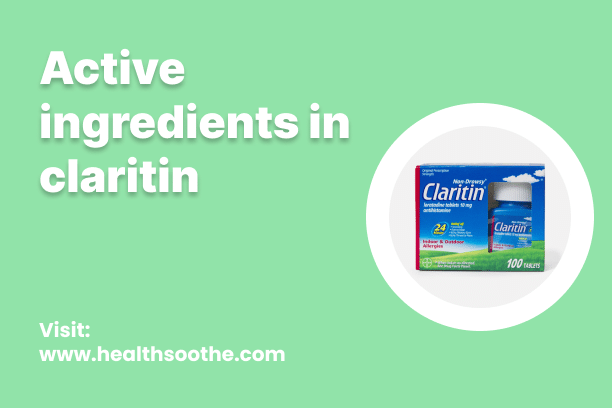Most often cavities and tooth decay will attack 42 PERCENT OF CHILDREN between the ages of 2 and 11, and caries is the most common childhood disease.
How can early childhood caries be prevented? and what can we as parents do to keep our children’s teeth healthy? Well, before we can fight childhood tooth decay, we have to understand what causes early childhood caries?
ORAL HEALTH MYTHS ABOUT PEDIATRIC DENTISTRY
When it comes to our baby teeth and dental care, we parents (mummy and daddy) always receive the wrong impression or advice.
For example,
- When is the right age to take your child to the dentist for the first time?
- Reasons why baby teeth are important.
- The benefits of tap water versus bottled water, make it easy to see why so many myths exist on the subject.
We appreciate how much parents care about their kids’ dental health, so we’ve compiled a list of the top 14 myths we hear the most about young children’s teeth:
Oral Health Myth #1 – Baby bottle tooth decay
Some of us always put their baby to bed with a feeding bottle. What’s the big deal? He doesn’t even have teeth yet.
Although you may not see the appearance of your baby teeth in your child’s mouth, they’re there — and they are just as susceptible to tooth decay as your adult teeth. You should be much aware and concern about Early Childhood Caries, or baby bottle tooth decay.
Letting your child fall asleep with a bottle full of milk, refined sugar like carbonated drinks we do more harm than good, instead give he/she more water often. sugar is not a good thing for anyone’s teeth, especially your baby’s.
It’s ok to let them drink milk in a bottle throughout the night. We all know that It may be very difficult to take away night feeds from our children, especially if they’re tricky sleepers, and for this reason some parents will put their children to bed with a bottle of milk and every kind of sweet things to sip on throughout the night to ensure a peaceful night’s sleep.
Try to avoid doing this as the lactose found in cow’s milk and many baby/toddler formulas is a type of sugar and can put children at risk of tooth decay when sipped throughout the night.
This effect is increased at night because everyone produces less saliva when we sleep, and we all need because it helps protect against tooth decay and mouth odor too. Instead, offer your child water during the night and over time they will hopefully wake up less often wanting milk.
Oral Health Myth #2 – Some parents say it doesn’t matter if their baby teeth decay
After all, they’re just going to fall out anyway!
After all of the discomfort children go through to erupt those 20 baby teeth, having them eventually fall out seems almost cruel. Yet, baby teeth have many important functions in your child’s development.
Baby teeth are an important foundation for their adult teeth, and the health of your child’s baby teeth can affect the health of their permanent teeth because it is the natural placeholder.
If dental decay is left untreated on a baby tooth, it not only affects the adult tooth growing underneath it, but the infection also can spread to other parts of the child’s body. As soon as baby teeth begin to appear, start brushing twice daily with a soft, age-appropriate sized toothbrush. Use a “smear” of fluoridated toothpaste for a child under 2 years of age; for 2-5-year-olds, use a pea-sized amount.
Oral Health MYTH #3: I don’t need to take my child to the dentist until he starts school.
Your child first visits pediatric dentist we give them a memorable experience, and we did not let them fear a dentist.
“First visit by the first birthday.” According to the American Academy of Pediatric Dentistry, your child should visit a child dentist when the first tooth comes in, usually in between 6-12 months of age.
Oral Health Myth #4 – Sugary treats are ok as long as your child brushes their teeth straight after
As a Parents, we always make the mistake of thinking that refines sugar and all candy is acceptable and good as long as our children brush their teeth straight after because we assume they’re removing all traces of sugar. However, brushing straight after eating or drinking is actually the bad time to do it.
Because tooth enamel is the hard outer layer of everyone teeth, and it becomes soft from acids in the drink and the brushing action can wear away this enamel. Over time, enamel can become worn away which can lead to sensitivity and discoloration of the teeth.
It’s well advised to wait at least an hour before they brush their teeth, as this gives their saliva the time it needs to neutralize acids in the mouth and for their enamel to re-harden. It can be helpful to give your children a small piece of cheese after meals or, if they are old enough, sugar-free chewing gum like xylitol helps to neutralize acids.
Oral Health MYTH #5: CHILDREN DON’T NEED TO SEE THE DENTIST UNTIL ALL OF THEIR TEETH COME IN.
An early oral diagnosis or exam gives your pediatric dentist a chance to come up with a long-term dental care plan that is most appropriate for your child needs.
For this reason, we recommend bringing your child in for an exam when their first tooth erupts. The earlier the better for your child to be exposed to dental care, and the more relaxed and comfortable he/she will be with regular appointments plus routine visits!
It’s well advised to take your child for their first dental appointment when their primary (baby) teeth start to appear, which is usually around six months of age.
Taking your child to the dentist from an early age helps them get used to the sights, sounds, and smells of a dental practice and get to know the professional team.
Also, any dental issues, such as dental caries can be easily detected and treated early on before they need more serious treatment. Waiting until your child is a toddler is not a good idea and they may have already developed some dental problems that you don’t seem to know.
Oral Health MYTH #6: My child can brush his/her own teeth.
Young children can not brush effectively as you do and they don’t have the knowledge of it either. The better thing to do is to allow him/her to brush their teeth on their own first so that they can learn the proper way of brushing, and then you can do a “follow-up brushing” immediately after.
Oral Health MYTH #7: Parents always says Bottled water is just as good for teeth as tap water.
Tap water contains fluoride – an important ingredient found in kind of toothpaste and has been proven to strengthen tooth enamel. However, some brands of bottled water do not contain fluoride that your child needs.
Fluoride is also an important vitamin for your child’s teeth including calcium to strengthen it and vitamin B to better absorb calcium. Also, vitamin c is very good for teeth as a well-balanced diet is also very essential for teeth developmental processes.
Oral Health Myth #8 – Fluoride is harmful to children
Fluoride is a naturally occurring mineral which is found in water but may (vary according to your geographical location and your child needs) and certain foods. It has proven benefits to protect against tooth decay, which is why it’s added to toothpaste, some drinking water, and offered to some children in the form of varnishes.
Fluoride is essential for strong, healthy teeth and is very safe. However, too much of everything is bad. It is advisable for both adults and children not to swallow too much fluoride toothpaste as it can cause tummy aches and other digestion problems.
Too much fluoride can also cause ‘fluorosis’ of the tooth enamel, which looks like patches of discoloration. That is why parents are always advised not to let their children lick or eat toothpaste directly from the tube because you don’t have any idea over how much they have a swallow.
When they brush, use a smear of age-appropriate toothpaste for babies and toddlers up to the age of three, and a pea-sized blob for children aged three to six. Always encourage children to spit the toothpaste out after brushing, and don’t rinse as this washes away the benefits of the fluoride.
Oral Health MYTH #9: CAVITIES IN BABY TEETH DO NOT AFFECT A CHILD’S ADULT TEETH.
Untreated cavities in baby teeth can inhibit the proper growth of adult teeth. Tooth decay affects the gums and roots of the teeth, that means harmful bacteria can be transferred from baby teeth to adult teeth that are coming in. Also, avulsed tooth as a result of Trauma to baby teeth can also cause problems for the growth of adult teeth.
Oral Health MYTH #10: DENTAL SEALANTS ARE UNSAFE FOR CHILDREN.
With proper brushing, flossing, and good nutritional habits, sealants reduce the risk of cavities by 80%.
Bisphenol (BPA) in sealants has been causing a long-term concern for so many parents. According to the American Dental Association, the BPA level in sealants is not sufficient enough to cause health problems, and they are completely safe for children.
Sealants may not be the best solution for all children, that is why our dentists will evaluate each child on a case-by-case basis.
Oral Health Myth #11 – Most Parent’s Assume Fruit juices and Smoothies are Healthy choices for Their Child Teeth
As a Parent, you should start to think about fruit juices and smoothies as occasional treats, much like a carbonated drink. Fruit is packed with a natural fruit sugar called fructose.
When the fruit is juiced or pureed, the fiber is lost and only contain sugary liquid full of fructose. A single 250ml glass of apple juice contains around seven teaspoons of sugar, which is about the same as cola! This means that fruit juice can have the same tooth decaying effect as a fizzy drink when drunk frequently.
Reduce your children frequent intake of fruit juice, but if they really want to take their juice it has to be part of their meal and not ordinarily drinking out of the bottle. Always dilute it before they consume it.
Like I said before, fruit juice is also very acidic and can soften and dissolve tooth enamel over time. Always remember that after drinking fruit juices, your child must wait at least an hour before they brush their teeth.
Oral Health MYTH #12: ONLY ADULT TEETH NEED TO BE FLOSSED.
Just because baby teeth are not permanent doesn’t mean they need less diligent care! Food particles still need to be removed from between baby teeth with antibacterial floss. Brushing only removes 30% of plaque and bacteria from your teeth, so flossing is very essential!
We recommend that you assist your child with flossing as soon as they have two teeth that touch. Because small children lack the common manual knowledge to floss properly, you should help with flossing until your child can brush and floss thoroughly.
Oral Health MYTH #13: A LITTLE BLOOD DURING BRUSHING IS NOT AN ISSUE TO BE CONCERN ABOUT.
One of the very first signs of gum disease is blood when brushing or flossing, even in small traces means a lot. A similar comparison is to consider your hand washing routine. If you suddenly saw blood, chances are you would be concerned!
With a specialized oral health plan and practicing good oral nutritional habits at home, gum disease in children can likely be reversed.
Oral Health Myth #14 – Bad teeth run in the family
Generally, susceptibility to tooth decay does not run in families and only a very small amount of people can attribute their poor oral health to their genes. Almost all cases of tooth decay are entirely preventable through a healthy diet, good oral health routine and regular visits to the dentist.
Babies aren’t born with the bacteria that cause tooth decay in their mouths, and these are usually transferred from family members in early life. The longer you can keep these bacteria away from their mouths, the better.
What Parents Can Do to Keep our Children’s teeth healthy
Apart from cutting down on junk food and juice-filled inside a bottle and sugary snacks or candy, there is a lot more you can do to ensure that your kid remains cavity-free.
The most important aspect is to enlighten them in every aspect of dental care and how to brush their teeth effectively and help them get to a point where it becomes a routine rather than a chore.
Giving your children a toothbrush and toothpaste of their choice will make the whole process easier. And don’t forget to teach them about flossing! Also avoid doing things that will spread bacteria, such as sharing spoons or cleaning a dropped pacifier with your own mouth.
Don’t get discouraged! Everyone’s teeth are unique and different, the best thing you can do as a parent is to help your kid keep their teeth healthy by bringing them to your family dentist for cleanings and dental exams!
Credit Sources
- Dental Plan UK – my teeth blog”, “children oral health myths”
- Charlotte Pediatric Dentistry – 6 myths about pediatric dentistry







